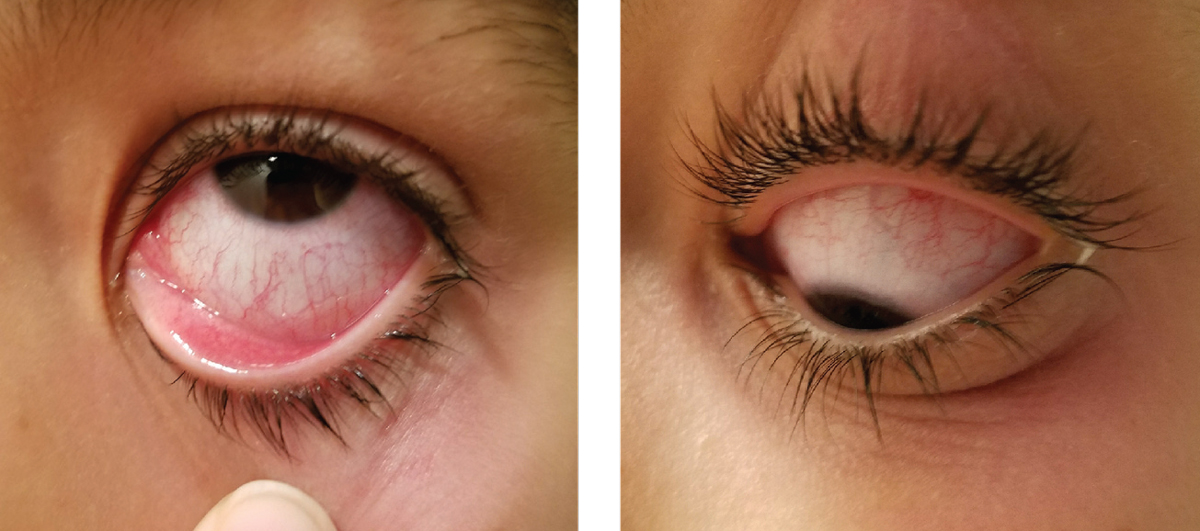 |
|
Moxifloxacin eye drops were shown in this study to effectively shorten symptom duration for children with acute infective conjunctivitis. Photo: Alexandra Espejo, OD. Click image to enlarge. |
When evaluating how well a treatment performs in patients with an eye infection, it’s important to examine its effect on children vs. adults individually; however, this isn’t always the case in clinical research. For example, one type of infection that’s common in younger patients—acute conjunctivitis—is often treated via a topical antibiotic, regardless of the patient’s age. This is despite the fact that, before now, no studies had thoroughly investigated the drug’s therapeutic effect exclusively on the pediatric population.
This gap in knowledge is what recently inspired researchers to conduct a study on the efficacy of topical antibiotics for treating acute infective conjunctivitis in children aged six months to seven years. The data showed that the intervention was indeed associated with significantly shorter durations of conjunctival symptoms in a young cohort.
The randomized controlled trial, conducted in Finland, followed 88 children with acute infective conjunctivitis for 14 days. Of these, 30 received moxifloxacin eye drops, 27 received placebo eye drops and 31 did not receive treatment. The primary outcome was days to clinical cure, defined as the resolution of all conjunctival symptoms for two consecutive days.
Children treated with moxifloxacin were clinically cured after 3.8 days on average, while untreated children were clinically cured after 5.7 days. However, there was no significant difference between the time to clinical cure in children who received moxifloxacin eye drops vs. those given placebo drops (3.8 vs. 4.0 days, respectively).
To further investigate the efficacy of moxifloxacin as a treatment for these patients, the researchers also performed a systematic review and meta-analysis including the present study along with three previous trials. The results of the review corroborated the findings of the current study. “Both moxifloxacin and placebo eye drops significantly shortened the time to clinical cure relative to no intervention,” they wrote.
The meta-analysis—unlike the present, smaller trial—found evidence of the advantages of moxifloxacin over placebo eye drops. A total of 584 children with the infection were included, 300 who were treated with topical antibiotics and 284 who were given a placebo. The researchers wrote, “The use of topical antibiotics was associated with a significant reduction in the proportion of children who had symptoms of conjunctivitis on days three to six compared with placebo eye drops.”
The authors concluded from the multiple analyses that, while the data did show an association between moxifloxacin and shorter durations of conjunctival symptoms in pediatric acute infective conjunctivitis, “the present RCT results also suggest that lubricating eye drops may have some benefits for the management of acute infective conjunctivitis in children.”
Honkila M, Koskela U, Kontiokari T, et al. Effect of topical antibiotics on duration of acute infective conjunctivitis in children: a randomized clinical trial and a systematic review and meta-analysis. JAMA Netw Open. October 4, 2022. [Epub ahead of print]. |

